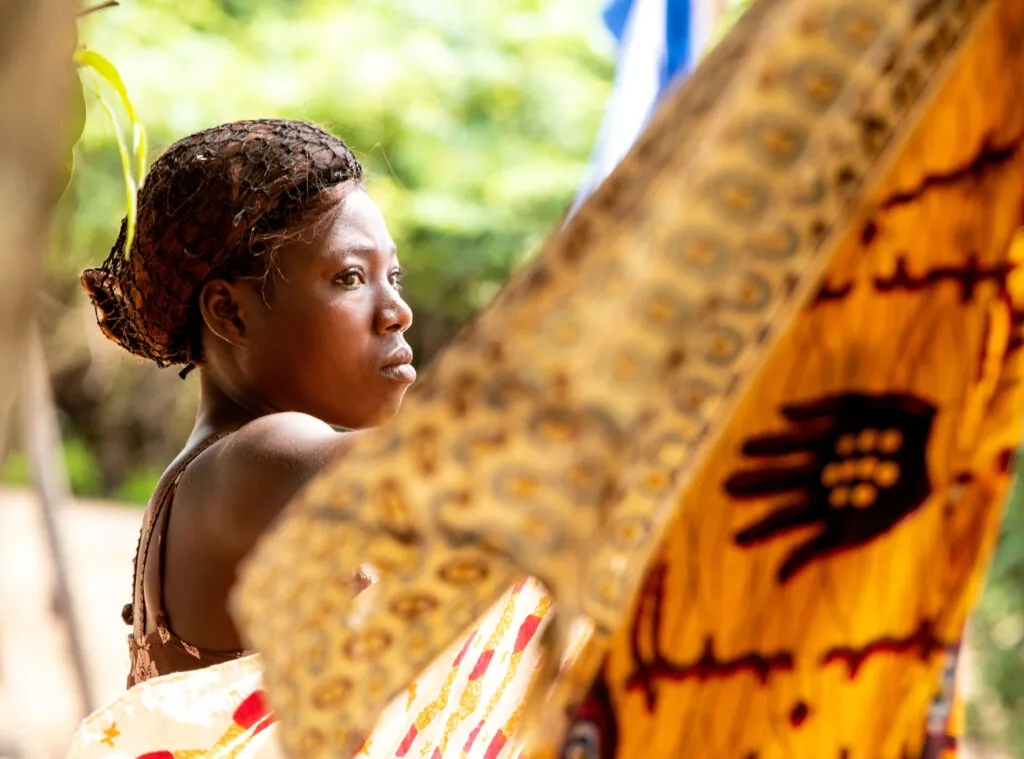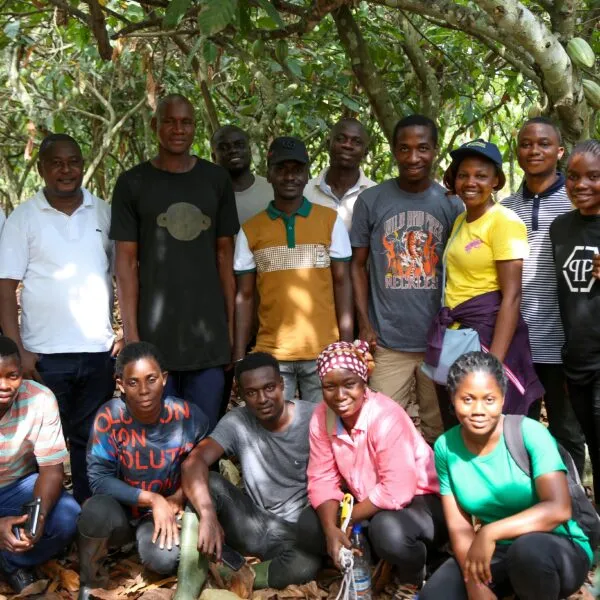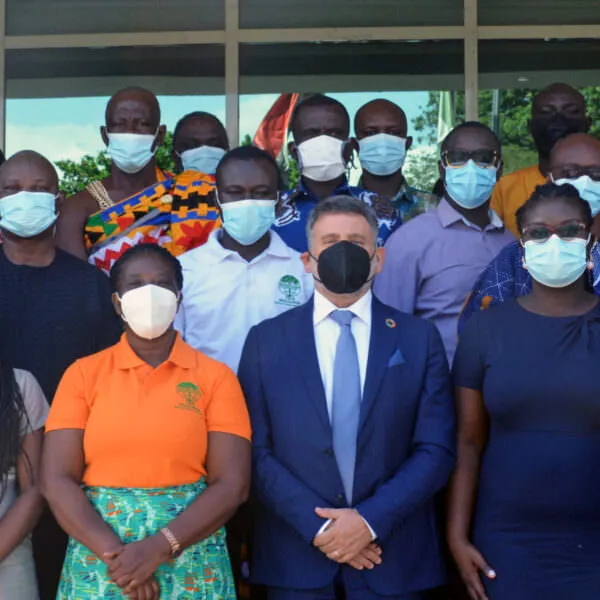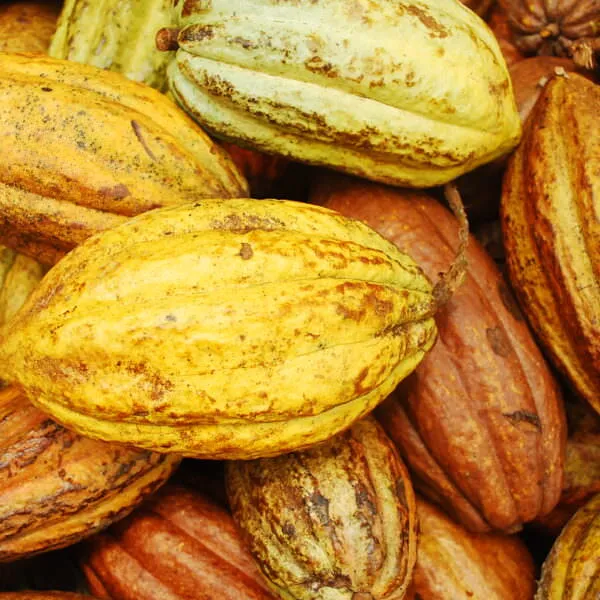Cocoa is the leading export of Côte d’Ivoire and Ghana, with millions of families relying on the crop for their livelihoods, yet cocoa farmers capture only about 5.5 percent of the value of the cocoa and chocolate supply chain. As a result, food insecurity is widespread and there has been a surge in illegal and environmentally destructive activities like gold mining and logging.
As the effects of climate change worsen, studies show that there will be significantly less land suitable for cocoa production in Côte d’Ivoire and Ghana and that increases in rainfall and humidity levels will increase the incidence of cocoa pests and diseases. Currently, few cocoa farmers in the region restore degraded forest patches on their farms and forest encroachment—driven by low yields on farmers’ existing land—results in greater land-based greenhouse gas (GHG) emissions and threatens biodiversity. Gender equality is also a big challenge facing the cocoa industry in this region. In both countries, women make up a significant part of the farm workforce; however, women cocoa farmers in Ghana earn 25-30 percent less than their male counterparts and up to 70 percent less in Côte d’Ivoire. Women also have less access than men to land, credit, farm inputs, technical support, social security, and other services.
Through this project, we will bring together cocoa-producing families, governments, and the private sector to improve livelihoods for cocoa farmers, increase tree cover, and help reduce national and corporate GHG emissions.
Locations
Côte d’Ivoire
- Regions of San Pedro, Nawa, Indénié Djuablin, Moronou and La Mé
Ghana
- Districts of Bibiani-Anhwiaso-Bekwai, Sefwi Wiawso, Akontombra, and Bodi.
Period
2022-2027
Partner communities
The project will have a direct impact on an estimated 15,000 farmers managing 50,000 hectares of farmland.
Project objectives: bringing cocoa communities together to improve livelihoods and landscapes

We will work in partnership with multinational chocolate companies, farmer cooperatives, and local partners to establish the technical capacity, policy implementation approaches, and economic incentives to achieve four key objectives at both the farm and landscape level in the project communities:
- Increase tree cover on and off the farm in the cocoa production landscapes through tree planting initiatives.
- Set up Landscape Management Boards (LMB) to enable effective and inclusive participatory governance for conserving forests and restoring degraded land in three target landscapes in Ghana and Côte d’Ivoire—Sui River in Ghana and South Tai National Park and Beki-Bossematie in Côte d’Ivoire.
- Build capacity and market incentives for farmers to apply climate-smart farming practices and increase benefits from cocoa farming for women and young people.
- Facilitate economic diversification in cocoa farming communities, creating enabling conditions for economic and social empowerment of women and young people.
Desired impacts: protecting forests and increasing incomes
By the end of the project, we will work to achieve the following outcomes:
- 70 percent of farming households confirm that they have increased their incomes through farming and other supplemental activities and have greater food security as a result of the project
- Farmland in the project landscapes will have 15 percent denser tree cover compared to baseline assessments
- A 25 percent reduction in forest encroachment recorded by LMB’s monitoring, evaluation, and learning systems
- 50 percent of community members in the project landscapes are actively participating in LMB action plans to conserve the forests with 50 percent of women and youth.
- 5,000 hectares of ecologically important land outside of farms and protected areas in the project landscapes are actively being restored
Funders
The United States Agency for International Development (USAID)
Partners
- Blommer Chocolate Company
- Costco Wholesale
- Mars Wrigley
- Mondelēz International
- Nestlé
- Olam Food Ingredients (ofi)
Rainforest Alliance contact
Christian Enokou, Chief of Party




